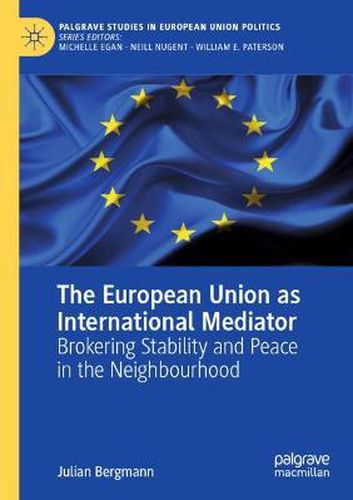Readings Newsletter
Become a Readings Member to make your shopping experience even easier.
Sign in or sign up for free!
You’re not far away from qualifying for FREE standard shipping within Australia
You’ve qualified for FREE standard shipping within Australia
The cart is loading…






This title is printed to order. This book may have been self-published. If so, we cannot guarantee the quality of the content. In the main most books will have gone through the editing process however some may not. We therefore suggest that you be aware of this before ordering this book. If in doubt check either the author or publisher’s details as we are unable to accept any returns unless they are faulty. Please contact us if you have any questions.
This book explores the EU’s effectiveness as an international mediator and provides a comparative analysis of EU mediation through three case studies: the conflict over Montenegro’s independence, the Belgrade-Pristina dialogue between Kosovo and Serbia, and the Geneva International Discussions on South Ossetia and Abkhazia. The book starts from the observation that the EU has emerged as an important international provider of mediation in various conflicts around the world. Against this background, the author develops an analytical framework to investigate EU mediation effectiveness that is then applied to the three cases. The main finding of the book is that EU mediation has a stabilising effect on conflict dynamics, making renewed escalation less likely and contributing to the settlement of conflict issues. At the same time, the EU’s effectiveness depends primarily on its ability to influence the conflict parties’ willingness to compromise through conditionality and diplomatic pressure.
$9.00 standard shipping within Australia
FREE standard shipping within Australia for orders over $100.00
Express & International shipping calculated at checkout
This title is printed to order. This book may have been self-published. If so, we cannot guarantee the quality of the content. In the main most books will have gone through the editing process however some may not. We therefore suggest that you be aware of this before ordering this book. If in doubt check either the author or publisher’s details as we are unable to accept any returns unless they are faulty. Please contact us if you have any questions.
This book explores the EU’s effectiveness as an international mediator and provides a comparative analysis of EU mediation through three case studies: the conflict over Montenegro’s independence, the Belgrade-Pristina dialogue between Kosovo and Serbia, and the Geneva International Discussions on South Ossetia and Abkhazia. The book starts from the observation that the EU has emerged as an important international provider of mediation in various conflicts around the world. Against this background, the author develops an analytical framework to investigate EU mediation effectiveness that is then applied to the three cases. The main finding of the book is that EU mediation has a stabilising effect on conflict dynamics, making renewed escalation less likely and contributing to the settlement of conflict issues. At the same time, the EU’s effectiveness depends primarily on its ability to influence the conflict parties’ willingness to compromise through conditionality and diplomatic pressure.